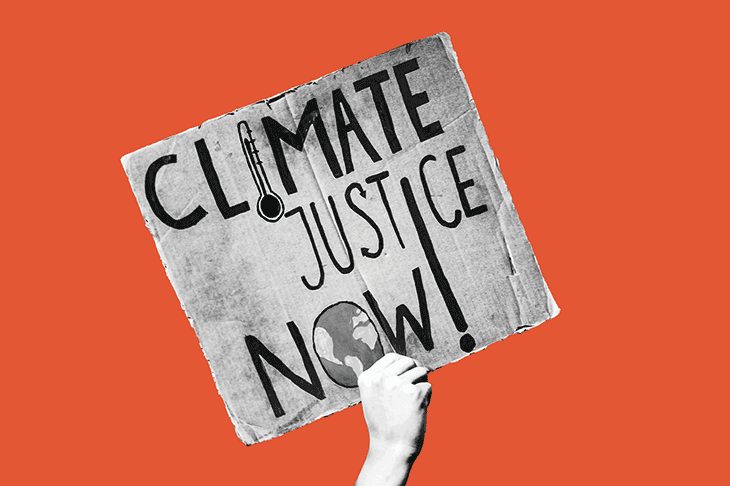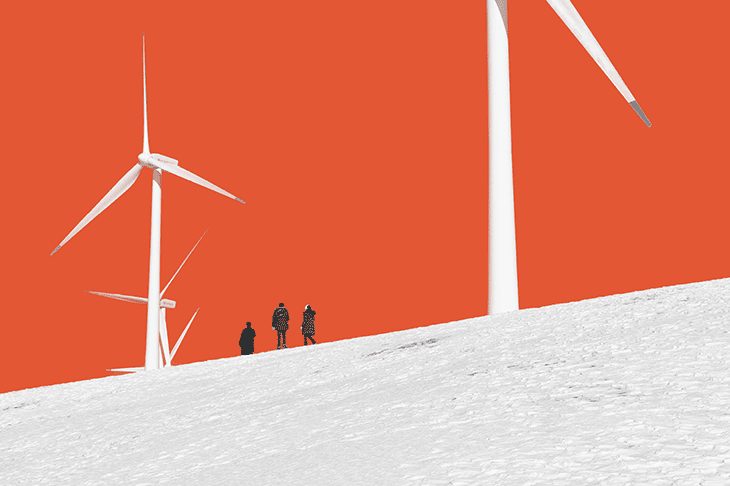Sign up to receive our weekly newsletter.
Jimmy Carter’s family has announced that the 98-year-old former US president has entered hospice care. Carter leaves behind a poignant reminder of two central facts about today’s climate emergency: its solutions have been around for decades, and it’s important to elect leaders who will implement them.
Jimmy Carter campaigned in 1976 as a supporter of renewable energy. As president, he installed solar panels on the roof of the White House, heralding a new era of US energy policy. But in 1980, American voters replaced Carter with Ronald Reagan, an outspoken opponent of all things environmental. Reagan ordered the panels removed; he and subsequent US presidents doubled down on fossil fuels; and today, humanity faces an unprecedented climate emergency.
As this year’s Earth Day (April 22) approaches, the need for climate solutions is urgent, and journalists have an indispensable role to play. It’s not our job to be cheerleaders or activists. But we are uniquely positioned to help the public and policymakers alike make better-informed decisions about what to do now.
From its launch in 1970, the core aim of Earth Day was not merely to decry the despoilment of the environment, but to take action to halt and reverse it. Earth Day 2023 is an opportunity for journalists and newsrooms to take our climate coverage to the next level. It would be a true public service to identify and report on the climate solutions that are likely to yield the greatest impact, the fastest — because at this stage in the climate emergency, speed is essential.
Climate solutions that deliver the biggest bang for the buck — call them “Super Solutions” — can take various forms. In technology, implementing solar and wind power, which is now cheaper than fossil fuel-generated electricity in much of the world, has major climate benefits. In economics, getting governments to end the massive subsidies — $1 trillion in 2022 — to fossil fuel companies would drive massive change. In politics, electing candidates who support strong climate action — and defeating ones who don’t — is a game changer.
The above examples are only suggestive. Interview climate specialists working on the problem, and you’ll hear many more. The International Energy Agency’s ‘Net Zero by 2050’ report outlines what’s needed to get there: halting all new development of oil, gas, and coal while accelerating deployment of wind and solar, electric vehicles, heat pumps, and more. Project Drawdown features dozens of climate solutions based on peer-reviewed science, including how people can engage with them. In the US, Rewiring America is an excellent source for how individuals and local businesses can access Inflation Reduction Act incentives to slash emissions.
Bear in mind that audiences tend to be most interested in solutions where they live, solutions they might even get involved with. For more, our ‘Climate Solutions Reporting Guide’ suggests story angles to consider, sources to interview, and missteps to avoid (e.g., beware of silver bullets). CCNow is available to brainstorm and provide feedback, and we are also pursuing Earth Day newsmaker interviews on the theme of “Super Solutions.” So stay tuned!
From Us
Awards. CCNow is accepting submissions from journalists around the world for the 2023 Covering Climate Now Journalism Awards. Please share our awards info with your journalism friends! The deadline is March 15. Learn more.
Noteworthy Stories
Bombed, polluted, burned. The Russian war in Ukraine has destroyed one-third of Ukraine’s forests, left six million people with little or no access to drinking water, and released an estimated 33 million tons of greenhouse gases, according to Ruslan Strelets, Ukraine’s environment minister. He warns of the potential for nuclear fallout at the Russian-occupied nuclear plant Zaporizhzhia, Europe’s largest, in southern Ukraine. Watch it at Al Jazeera…
“Bait and switch.” US fossil fuel companies have secured 45 liquefied natural gas contracts since Russia invaded Ukraine, under the pretense of helping solve Europe’s short-term energy needs, according to a new report by Friends of the Earth, Public Citizen, and BailoutWatch. The contracts are equivalent to the yearly carbon emissions of 94 coal plants. Alan Zibel, research director for Public Citizen, calls it a “bait and switch,” because, “in reality, the bulk of the contracting volume is still going to Asia.” By Amy Westervelt at the Guardian…
Solar misinformation. A US organization linked to GOP politicians and dark money groups, Citizens for Responsible Solar, is helping rural groups fight the implementation of solar in 10 states. Analysts say that Citizens is spreading misinformation about solar projects. That misinformation is increasing pressure on local officials responsible for approving solar projects who fear political repercussions. By Miranda Green for Floodlight and Michael Copley for NPR…
Wind disinformation. Citing disinformation, New Jersey governor Phil Murphy says that construction of offshore wind turbines will continue after 30 Jersey mayors sent letters to state and federal officials demanding a stop to development. The mayors falsely claim that 10 dead whales that washed up on local beaches since December are linked to the projects, despite no evidence to support the claim. By Steven Rodas at NJ.com…
God’s work. Black women inspired by their religious beliefs are organizing activists, fighting corporations, and standing up to government officials for environmental justice. For example, 70-year-old grandmother Sharon Lavigne helped stop Formosa Plastics from building a $9.4 billion manufacturing facility in Louisiana that would have emitted over 800 tons of pollution into a mostly Black, low-income community. The company is appealing a state judge’s ruling. By James Bruggers at Inside Climate News…
Free to Publish
The following stories deserve special consideration for republication by CCNow partners:
- OPEC Urges ‘Big Picture’ Approach to Oil as COP 28 Chair Rejects Conflict Accusations – The Energy Mix
- Any Way the Wind Blows – Grist, the Houston Chronicle and the Beaumont Enterprise
- Homes in Flood Zones Are Overvalued by Billions, Study Finds – Grist
- Flooding is Pummeling the Southeast U.S. These Organizers Are Fighting Back – Yale Climate Connections
For partner outlets: The full list of stories available for republication and instructions to do so can be found in our Sharing Library. To submit stories for sharing, please use this form.
Events & Resources
Tip sheet. The Journalist’s Resource has a new tip sheet about covering research studies, focusing on how to accurately describe their conclusions. Check it out.
Extreme heat. Columbia University’s Climate School will host a webinar with experts in public health, environmental justice, and climate science for a discussion of the latest research on recent waves of killer heat and humidity, worsening drought and wildfires, and ideas for ways to mitigate future disasters. February 27. RSVP.
Responsible travel. The Yale Center for Environmental Communication will hold a panel discussion on growing interest in sustainable tourism and responsible travel in the age of climate change. March 1. RSVP.
Jobs, Etc.
Jobs. The Food & Environment Reporting Network is recruiting an editor-in-chief. Scientific American is looking for a multimedia intern, a graphics intern, and a news intern.
Fellowships. The 2023 Global Investigative Journalism Conference is offering over 150 fellowships to journalists in developing and transitioning countries, and for journalists from disenfranchised communities to participate in a training event from September 19-22. The application deadline is February 28. Learn more.


